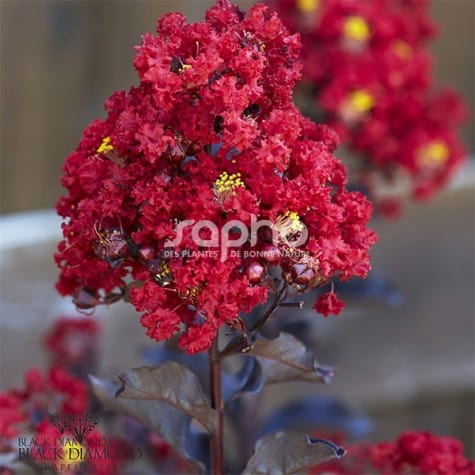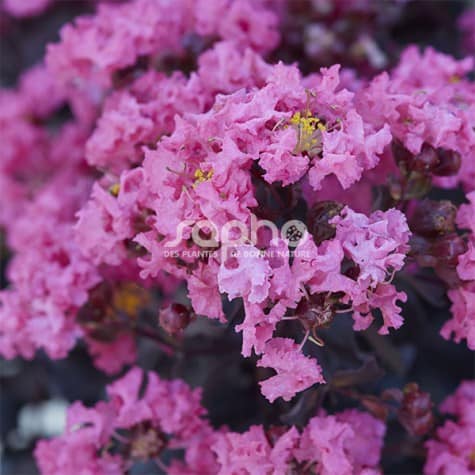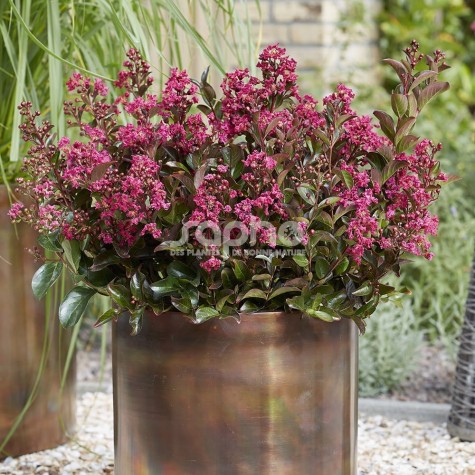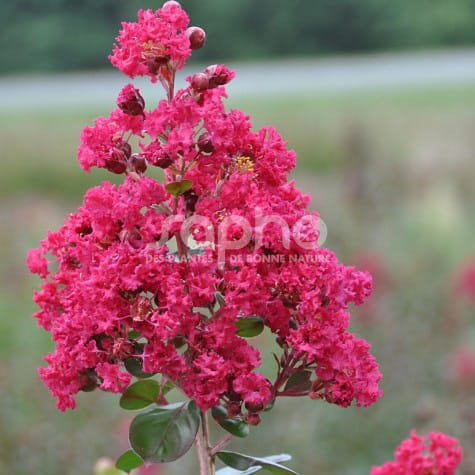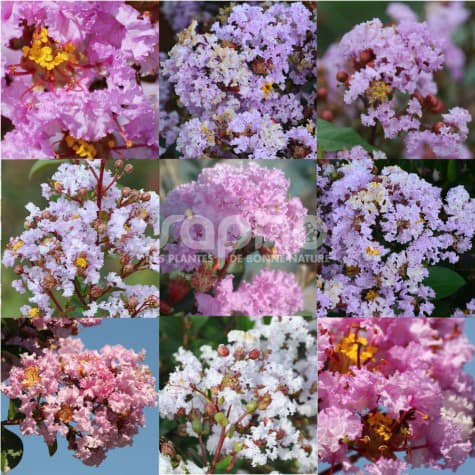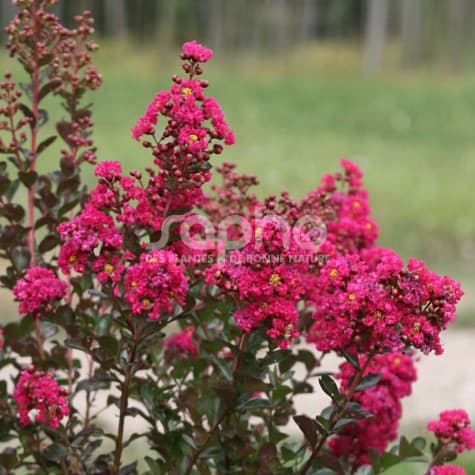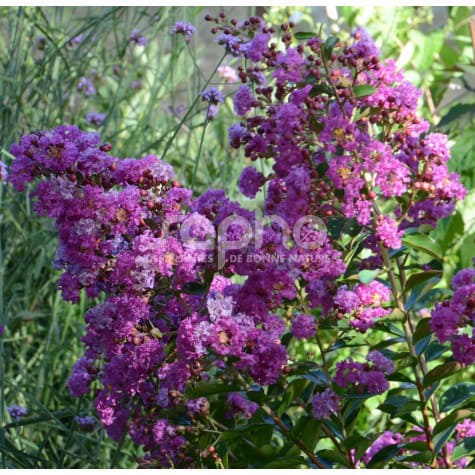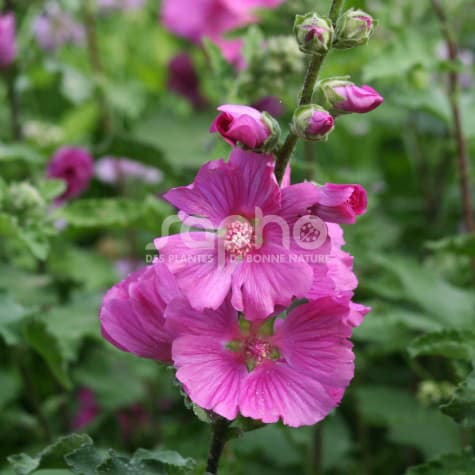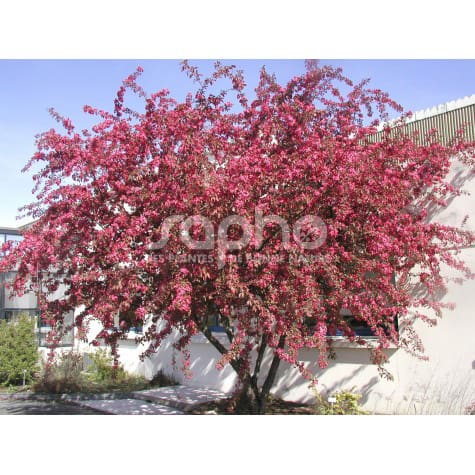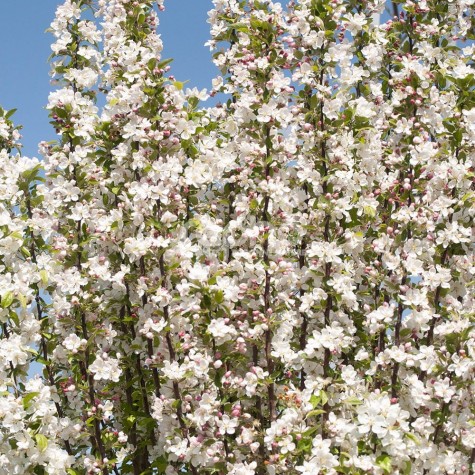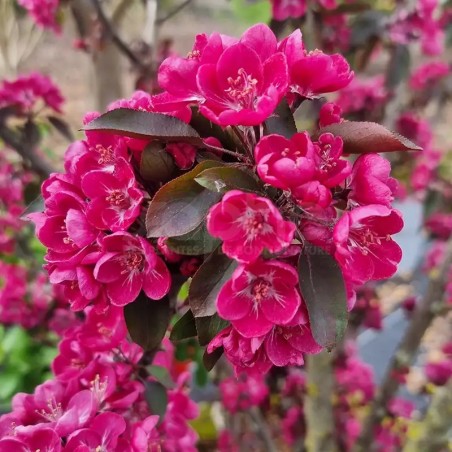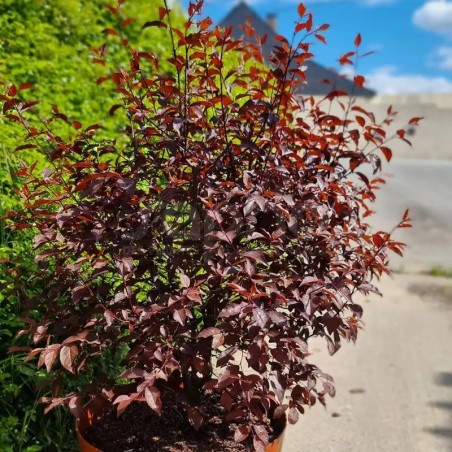A shrub with bright flowers against a background of black foliage
BLACK DIAMOND® Red Hot™ is a variety of Indian lilac with almost black foliage crowned by a mass of bright red flowers appearing in summer.
It has an upright to bushy habit and, once established, will withstand sub-zero temperatures, down to -18° C.
It's a heat-resistant plant that will thrive in the garden, in a sunny spot.
Filter By
Foliage
Position
Where to find Sapho plants ?
For young plants
You will find the names of Sapho-licensed nurserymen at the bottom of each variety sheet.
For available plants
Please ask your nursery suppliers.
Each licensed propagator is free to market his young plants to all his customers.
Categories
Menu
All our varieties
A shrub with bright flowers against a background of black foliage
BLACK DIAMOND® Shell Pink™ is a variety of Indian lilac with almost black foliage crowned by a mass of shell-pink flowers appearing in summer.
It has an upright to bushy habit and, once established, will withstand sub-zero temperatures, down to -18° C.
It's a heat-resistant plant that will thrive in the garden, in a sunny spot.
A superb lagerstroemia, ideal for small spaces!
This variety of Indian lilac has a compact, upright habit. Its summer flowers are fuchsia-red.
Its green foliage takes on crimson hues in autumn.
Resistant to heat, it's ideal for small gardens, as a bedding plant, on its own or in pots on a terrace or balcony.
A very early fire-red in the INDIYA CHARMS® range.The very early flowering is remarkable because of its very dense, good-sized, intense red thyrses, from the beginning of July onwards; in the right conditions, there is new flowering at the end of summer. The young red shoots are followed by dark green foliage.BRAISE D'ÉTÉ®, CAMAÏEU D'ÉTÉ®, FUCHSIA D'ÉTÉ® and VIOLET D'ÉTÉ® are the four varieties of the INDIYA CHARMS® range in our program. They offer pretty shades of mauve, violet, pink and red, adding bright summer colours to shrub borders and mixed hedges. Stem-grafted, in pots or in the ground, they decorate any entrance, terrace or, more traditionally, can be planted in a row.They can also be trained along a south facing wall.
The earliest variety of the INDIYA CHARMS® range.
The earliest cultivation of this range offers a cameo of pretty white to mauve coloured flowers and has small leaves and a dense shape.BRAISE D'ÉTÉ®, CAMAÏEU D'ÉTÉ®, FUCHSIA D'ÉTÉ® and VIOLET D'ÉTÉ® are the four varieties of the INDIYA CHARMS® range of our program. They offer pretty shades of mauve, violet, pink and red, adding bright summer colours to shrub beds and mixed hedges. Stem-grafted, in pots or in the ground, they decorate any entrance, terrace or, more traditionally, can be planted in a row.They can also be trained along a south facing wall.
The fuchsia coloured lilac of the INDIYA CHARMS® rangeThe young red shoots make room for big shiny leaves, purple green to bronze, depending on the conditions. The early flowers bloom as very thick fuchsia coloured, nearly red thyrses.BRAISE D'ÉTÉ®, CAMAÏEU D'ÉTÉ®, FUCHSIA D'ÉTÉ® and VIOLET D'ÉTÉ® are the four varieties of the INDIYA CHARMS® range of our program. They offer pretty shades of mauve, violet, pink and red, adding bright summer colours to shrub borders and mixed hedges. Stem-grafted, in pots or in the ground, they decorate any entrance, terrace or, more traditionally, can be planted in a row.They can also be trained along a south facing wall.
Bright violet in the INDIYA CHARMS® range
This strong growing variety offers early very bright violet flowers, contrasting with the gold-yellow stamens.BRAISE D'ÉTÉ®, CAMAÏEU D'ÉTÉ®, FUCHSIA D'ÉTÉ® and VIOLET D'ÉTÉ® are the four varieties of the INDIYA CHARMS® range of our program. They offer pretty shades of mauve, violet, pink and red, adding bright summer colours to shrub borders and mixed hedges. Stem-grafted, in pots or in the ground, they decorate any entrance, terrace or, more traditionally, can be planted in a row.They can also be trained along a south facing wall.
Trophies:
Bronze medal at Plantarium 2013 (Boskoop - NETHERLANDS)
A bright lavatera for the beginning of summer.Deriving from the Lavatera olbia 'Rosea', CHAMALLOW® shows a certain orginality compared to the classic varieties of Lavatera. This selection has a particularly compact, bushy and rounded growth. Its light green, slightly velvety foliage stays healthy. These qualities make it interesting for growing in containers.In July - August, the straight branches have deep pink flowers. They are of medium size with even darker pink stripes.To be planted in flowering hedges or in beds, together with shrubs and perennials.
An ornamental apple tree for the town or the country.This tree is of semi-spreading shape, reaching a height of 3 to 4meters in ten years and has a harmonious form, which it keeps without the necessity of pruning. Its leaves and branches are purple.The violet-pink flowers blossom in April - May along the whole length of the branches, and the purple fruits appear in autumn.COCCINELLA® has also been chosen by the INRAE selectors for its resistance to the major diseases such as fire blight, scab and mildew.Grown to a full standard, COCCINELLA® has the asset of a small town tree; grown in clumps, its foliage and fruit are appreciated in mixed countryside hedges or in shrub borders.
Naturally a STAR since its creation.
This tree is of semi-spreading growth, reaching a height of 3 to 4m in ten years and has a harmonious shape, which it keeps without the necessity of pruning. Its foliage is green.
In April, 'Evereste' covers itself in bright pink flower buds, which bloom as pure white bouquets of flowers. The quality and the abundance of its pollen make it an ideal pollinator, precious for fruit growers (in proportion of 6 - 8% of all varieties of early or semi-early flowering).
The cherry sized fruits are orange with thin red stripes. They apprear in autumn and have the particularity to last well into winter.
'Evereste' has also been chosen by the INRAE selectors for its resistance to the major diseases such as fire blight, scab and mildew.
Nearly a million plants have been sold in Europe since its creation in 1974.
Its ornamental qualities, its reasonable dimensions and its easy care make it an excellent small urban tree if grown full standard; in clumps it is very valuable in the composition of flowering hedges and in shrub borders.
A landmark in the garden!
A columnar habit when young, evolving into a pyramidal form
Young, purple foliage that turns dark green
Spectacular intense red flowering in bud, evolving to carmine pink
Numerous plum-sized, purplish-red fruits with red flesh persist until late autumn
Its initial columnar shape evolves into a pyramid shape with age, making it ideal for small spaces
A chocolate-red Prunus for small spaces
A compact, branching habit from a young age
An attractive dark chocolate-red foliage that turns black-red in summer
Creamy white spring flowers that contrast with the foliage
Very hardy and only half the size of the 'Nigra' variety, making it ideal for small spaces and container growing

